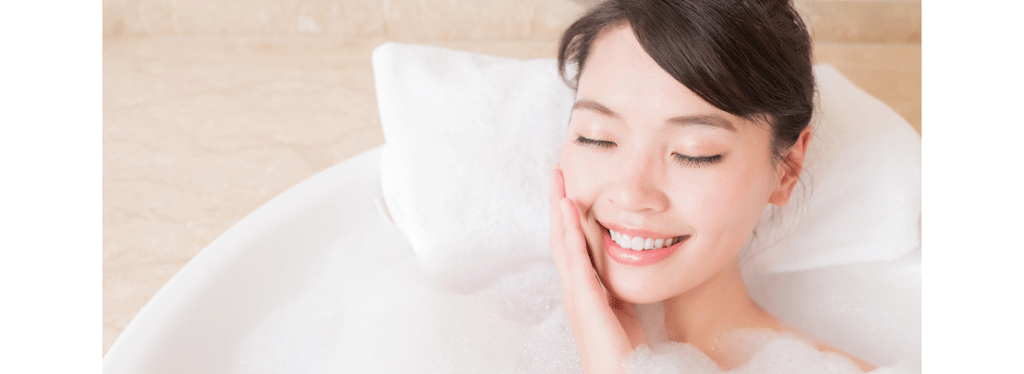The Benefit of Taking a Bath
Discover the Japanese tradition of daily bathing and its remarkable health benefits. From boosting your immune system and metabolism to promoting better sleep and relaxation, a simple bath can transform your well-being.
SELF-CARE
12/20/20242 min read


The Benefits of Taking a Bath
Japanese people are renowned for their regular bathing habits: a tradition passed down through generations due to the numerous benefits it offers. Bathing is more than just a routine. It's a practice deeply embedded in Japanese culture, known for its relaxation and health benefits.
After a long day of work, a bath can provide unparalleled relaxation and significantly improve blood circulation, contributing to overall better health. Recognizing these benefits, Japanese bathrooms are designed for efficiency and ease of use. Many homes feature advanced devices to control water temperature and heat the bathtub, enhancing the bathing experience.
In addition to home baths, public hot springs, or "onsen," are popular destinations. Whether on holiday or after a busy workday, people visit these baths to unwind. Some onsens are situated in scenic locations surrounded by nature and mountains, allowing visitors to enjoy breathtaking views while soaking in the warm, soothing waters.
Why Taking a Bath Improves Your Health
Improves Blood Circulation: As body temperature rises while taking a bath at 38-39°C, blood vessels widen, enhancing blood circulation.
Lowers Cholesterol: A warm bath at 38-39°C helps lower cholesterol by widening blood vessels and improving circulation. However, hot baths above 39°C should be avoided as they may cause blood clots.
Lowers Blood Pressure: Taking a warm bath helps lower blood pressure by widening blood vessels. Avoid hot baths if your blood pressure is above 160/100 mmHg.
Improves Metabolism: Bathing raises body temperatures, activating metabolism as the core temperature increases.
Boosts the Immune System: Improved blood circulation from a warm bath helps raise core temperature and enhance the immune system.
Promotes Better Sleep: A bath at the right temperature (around 39°C) relaxes the body. An excessively hot bath stimulates the sympathetic nervous system, while a bath that is too cold is less effective. For optimal sleep, take a bath 60-90 minutes before bed. The slight drop in body temperature afterwards promotes sleep. Cold feet and hands can make falling asleep difficult, so a warm bath can help ensure a good night's rest.
Helps Relax: Bathing at 38-39°C activates the parasympathetic nervous system, which relaxes the body. Higher temperatures activate the sympathetic system, reducing relaxation. For best results, keep the water at 38-39°C.
Cleans the Skin: A warm bath opens skin pores, helping to cleanse them. As body temperature rises, you sweat, expelling waste. This also activates internal organs, enhancing detoxification.
Things to consider before taking a hot bath
Avoid hot baths if your blood pressure is above 160/100 mmHg or if you are feeling unwell.
Drink 1-2 glasses of water before bathing to prevent dehydration.
If your body temperature is 37.5°C or higher, avoid bathing.
Do not take a long hot bath, as it can cause dehydration and increase blood coagulation.
Avoid alcohol before or after bathing.
Enjoy a relaxing bath, and invigorate both your body and mind!
Sakura Fitness & Beauty
Promoting fitness, health, wellness, and beauty.
© 2025. All rights reserved.
London, UK
info@sakurafitnessbeauty.com
